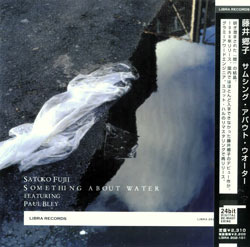
8 remarkable and collaborative duets from pianists Satoko Fujii and free jazz legend Paul Bley, and 3 lovely solo pieces of extended technique and color.
In Stock
Quantity in Basket: None
Log In to use our Wish List
Shipping Weight: 3.00 units
EU & UK Customers:
Discogs.com can handle your VAT payments
So please order through Discogs
Sample The Album:
Click an artist name above to see in-stock items for that artist.
UPC: 4562169331013
Label: Libra
Catalog ID: 202-002
Squidco Product Code: 9301
Format: CD
Condition: New
Released: 1996
Country: Japan
Packaging: Cardstock Sleeve
Recorded at Emerald City Studios, Boston, December 1, 1994, February 3 and 23, 1995.
"Sakoto Fujii's album of solos and four-handed duets with Paul Bley is perhaps one of the more stunning improv piano recordings of the 1990s. Fujii's style, one of refined maximalism and sharp, angular timbral expansions, is in stark contrast to Bley's resonant, spacious pointillism. And perhaps that's why it works so well. As Bley hovers about in the middle and lower registers on most of these works, Fujii carefully crafts a microtonal series of clustered single, double, and triple note runs constructed of legato phrasing and shimmering glissando. She also digs deep to make the chords in the upper register resonate timbrally with the angular bass patterns Bley is playing. These chords are seldom shrill, but they are poignant, full of raw edges and sharp turns down the scale. For his part, Bley tries to define the space and border it tonally so that Fujii has more room for her explorations. And it works, but the time the duo reach "The Surface of It," the album's third track, they become symbiotic and begin moving to shape space, color, and time in catalogs of notes rather than patterns of them. When they reach they end of their collaboration on "Strings," which is played inside the piano, there is no more telling who is who and where the notes begin or end, only that they resonate -- even in dissonance -- as true and spare and beautiful. On the solo tracks ("Waiting," "Yad Nus," and "Lake") Fujii puts forth her truly individual voice as a soloist and merges her classical technique with a jazzer sense of phrasing and an improviser's sense of place and timing. Of the three, "Waiting" with its vast expanse of colors and inverted counterpoint is the most enjoyable though all of them are lovely. For piano fans, particularly those of the new music ilk, this is an album that is well worth seeking out."-Thom Jurek
Artist Biographies
• Show Bio for Satoko Fujii "Born on October 9, 1958 in Tokyo, Japan, Fujii began playing piano at four and received classical training until twenty, when she turned to jazz. From 1985-87, she studied at Boston's Berklee College of Music, where her teachers included Herb Pomeroy and Bill Pierce. She returned to Japan for six years before returning to the US to study at the New England Conservatory in Boston, where her teachers included George Russell, Cecil McBee, and Paul Bley, who appeared on her debut CD Something About Water (Libra, 1996). Since then Fujii has been an innovative bandleader and soloist, a tireless seeker of new sounds, and a prolific recording artist in ensembles ranging from duos to big bands. She has showcased her astonishing range and ability approximately 80 CDs as leader or co-leader. With each new recording or new band, she explores new aspects of her art. Regular collaborations include her New York trio with bassist Mark Dresser and drummer Jim Black, augmented by trumpeter/husband Natsuki Tamura to form the Satoki Fujii Four; her duo with Tamura; the Satoko Fujii Quartet featuring Tatsuya Yoshida of the Japanese avant-rock duo, The Ruins; Orchestra New York, which boasts the cream of New York's contemporary avant garde improvisers, including saxophonists Ellery Eskelin and Tony Malaby, trumpeters Herb Roberton and Steven Bernstein, and trombonist Curtis Hasselbring, among others; Orchestra Tokyo, drawing on that city's best improvisers; Orchestra Nagoya; Orchestra Kobe; the co-operative trio Junk Box with Tamura and percussionist John Hollenbeck; ma-do, a quartet including Tamura on trumpet, bassist Norikatsu Koreyasu, and Akira Horikoshi; the Min-Yoh Ensemble with Tamura, trombonist Hasselbring, and accordionist Andrea Parkins; the Satoko Fujii New Trio, featuring bassist Todd Nicholson and drummer Takashi Itani― plus countless engagements and collaborations with some of the world's most important improvisers." ^ Hide Bio for Satoko Fujii • Show Bio for Paul Bley "Hyman Paul Bley, CM (November 10, 1932 - January 3, 2016) was a Canadian pianist known for his contributions to the free jazz movement of the 1960s as well as his innovations and influence on trio playing and his early live performance on the Moog and Arp audio synthesizers. Bley was a long-time resident of the United States. His music has been described by Ben Ratliff of the New York Times as "deeply original and aesthetically aggressive." Bley's prolific output includes influential recordings from the 1950s through to his solo piano records of the 2000s. Bley was born in Montreal, Quebec, on November 10, 1932. His adoptive parents were Betty Marcovitch, an immigrant from Romania, and Joe Bley, owner of an embroidery factory. However, in 1993 a relative from the New York branch of the Bley family walked into Sweet Basil in NYC and informed him that his father was actually his biological parent. At age five Bley studied violin, but at age seven he decided to switch to the piano. By eleven he received a junior diploma from the McGill Conservatory in Montreal. At thirteen he formed a band which played at summer resorts in Ste. Agathe, Quebec. As a teenager he played with touring American bands, including Al Cowan's Tramp Band. In 1949, when Bley was starting his senior year of high school, Oscar Peterson asked Bley to fulfill his contract at the Alberta Lounge in Montreal. The next year Bley left Montreal for New York City and Julliard. In the 1951, on a return trip to Montreal, Bley organized the Jazz Workshop with a group of Montreal musicians. In 1953 Bley invited the bebop alto saxophonist and composer Charlie Parker to the Jazz Workshop, where he played and recorded with him. When Bley returned to New York City he hired Jackie McLean, Al Levitt and Doug Watkins to play an extended gig at the Copa City on Long Island. In 1953 the Shaw Agency booked Bley and his trio to tour with Lester Young, billed as "Lester Young and the Paul Bley Trio" in ads. He also performed with tenor saxophonist Ben Webster at that time. He then conducted for bassist Charles Mingus on the Charles Mingus and His Orchestra album. Additionally, in 1953, Mingus produced the Introducing Paul Bley album for his label, Debut Records with Mingus on bass and drummer Art Blakey . (In 1960 Bley recorded again with the Charles Mingus Group.) In 1954 Bley received a call from Chet Baker inviting him to play opposite Baker's quintet at Jazz City in Hollywood, California for the month of March. This was followed by a tour with singer Dakota Staton. Down Beat Magazine interviewed Bley for its July 13, 1955 issue. The prescient title of the article read, "PAUL BLEY, Jazz Is Just About Ready For Another Revolution." The article, reprinted in Down Beat's 50th Anniversary edition, quoted Bley as saying, "I'd like to write longer forms, I'd like to write music without a chordal center." Bley's trio with Hal Gaylor and Lennie McBrowne toured across the US in 1956, including a club in Juarez. Mexico. The tour culminated with an invitation to play a 1956 New Year's Eve gig at Lucile Ball and Desi Arnez's home in Palm Springs. During the evening, Bley collapsed on the bandstand with a bleeding ulcer and Lucy immediately took him to the Palm Springs hospital where she proceeded to pay for all of his medical care. Bley, who had met Karen Borg while she was working as a cigarette girl at Birdland in NYC, married her after she came out to meet him in Los Angeles, where she became Carla Bley. In 1957 Bley stayed in Los Angeles where he had the house band at the Hillcrest Club. By 1958 the original band, with vibe player, Dave Pike, evolved into a quintet with Bley hiring young avant garde musicians trumpet player Don Cherry, alto saxophonist Ornette Coleman, bassist Charlie Haden and drummer Billy Higgins. In the early 1960s Bley was part of "The Jimmy Giuffre 3," with Giuffre on reeds, and Steve Swallow on bass. Its repertoire included compositions by Giuffre, Bley and his now ex-wife, composer Carla Bley. The group's music moved towards chamber jazz and free jazz. The 1961 European tour of The Giuffre 3 shocked a public expecting Bebop, however the many recordings released from this tour have proven to be classics of free jazz. During the same period, Bley was touring and recording with tenor saxophonist Sonny Rollins, which culminated with the RCA Victor album Sonny Meets Hawk! with tenor saxophonist Coleman Hawkins. Bley's solo on "All The Things You Are" from this album has been called "the shot heard around the world" by Pat Metheny. In 1964 Bley was instrumental in the formation of the Jazz Composers Guild, a co-operative organization which brought together many free jazz musicians in New York: Roswell Rudd, Cecil Taylor, Archie Shepp, Carla Bley, Michael Mantler, Sun Ra, and others. The guild organized weekly concerts and created a forum for the "October Revolution" of 1964. In the late 1960s, Bley pioneered the use of the Arp and Moog synthesizers, performing live before an audience for the first time at Philharmonic Hall in New York City on December 26, 1969. This "Bley-Peacock Synthesizer Show" performance, a group with singer/composer Annette Peacock, who had written much of his personal repertoire since 1964, was followed by her playing on the recordings Dual Unity (credited to "Annette & Paul Bley") and Improvisie. The latter was a French release of two extended improvisational tracks with Bley on synthesizers, Peacock's voice and keyboards, and percussion by Dutch free jazz drummer Han Bennink, who had also appeared on part of Dual Unity. [biography continues...]" ^ Hide Bio for Paul Bley
7/9/2025
Have a better biography or biography source? Please Contact Us so that we can update this biography.
7/9/2025
Have a better biography or biography source? Please Contact Us so that we can update this biography.
Track Listing:
Satoko Fujii/Paul Bley
1. Something About Water 2:49
2. Stream 4:11
3. The Surface Of It 5:06
4. Thought About Spring 4:06
5. Shadow 6:45
6. Light 2:09
7. Thawings 6:29
8. Strings 7:54
Satoko Fujii
9. Waiting 5:44
10. Yad Nus 2:48
11. Lake 3:02
Improvised Music
Jazz
Piano & Keyboards
Boston Area Improvisers
Trio Recordings
Satoko Fujii & Natsuki Tamura's Libra Label
Search for other titles on the label:
Libra.







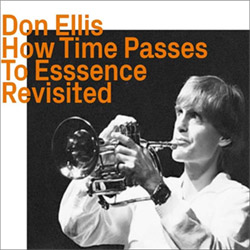
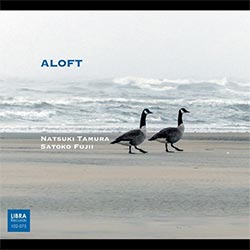
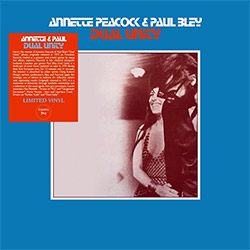







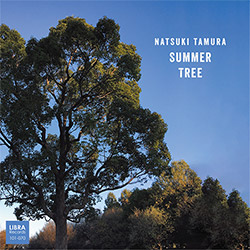

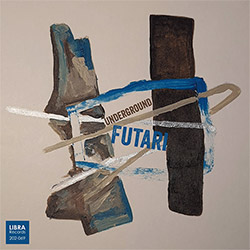





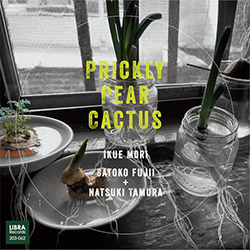
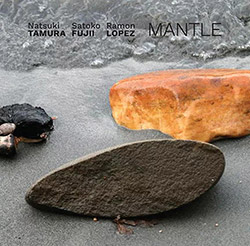




![BlueRing Improvisers: Materia [2 CDs]](https://www.teuthida.com/productImages/misc4/36513.jpg)








![Wheelhouse (Rempis / Adasiewicz / McBride): House And Home [VINYL]](https://www.teuthida.com/productImages/misc4/36462.jpg)
![+DOG+: The Light Of Our Lives [2 CDs]](https://www.teuthida.com/productImages/misc4/36009.jpg)


![Parker, Evan / Jean-Marc Foussat: Insolence [VINYL]](https://www.teuthida.com/productImages/misc4/36398.jpg)










![Deupree, Jerome / Sylvie Courvoisier / Lester St. Louis / Joe Morris: Canyon [2 CDs]](https://www.teuthida.com/productImages/misc4/36404.jpg)



![Eventless Plot | Haarvol: The Subliminal Paths [CASSETTE + DOWNLOAD]](https://www.teuthida.com/productImages/misc4/36232.jpg)










![Eventless Plot | Francesco Covarino: Methexis [CASSETTE + DOWNLOAD]](https://www.teuthida.com/productImages/misc4/36231.jpg)



![Das B (Mazen Kerbaj / Mike Majkowski / Magda Mayas / Tony Buck): Love [VINYL]](https://www.teuthida.com/productImages/misc4/36329.jpg)


![Eternities: Rides Again [CASSETTE]](https://www.teuthida.com/productImages/misc4/36247.jpg)
![Lopez, Francisco: Untitled (2021-2022) [2 CDs]](https://www.teuthida.com/productImages/misc4/36438.jpg)






![Money : Money 2 [2 CDs]](https://www.teuthida.com/productImages/misc4/35894.jpg)




![Klinga, Erik: Elusive Shimmer [VINYL]](https://www.teuthida.com/productImages/misc4/36258.jpg)
![CHANGES TO blind (Phil Zampino): Volume 9 - I Wave on a Fine Vile Mist [CD + DOWNLOAD]](https://www.teuthida.com/productImages/misc4/36061.jpg)

![Wallmart / Rubbish: Asset Protection [split CD]](https://www.teuthida.com/productImages/misc4/35900.jpg)


![+Dog+: The Family Music Book Vol. 5 [2 CDs]](https://www.teuthida.com/productImages/misc4/35897.jpg)
![Kuvveti, Deli : Kuslar Soyledi [CASSETTE w/ DOWNLOAD]](https://www.teuthida.com/productImages/misc4/36107.jpg)

![Brown, Dan / Dan Reynolds: Live At The Grange Hall [unauthorized][CASSETTE]](https://www.teuthida.com/productImages/misc4/36245.jpg)








![Palestine, Charlemagne / Seppe Gebruers: Beyondddddd The Notessssss [VINYL]](https://www.teuthida.com/productImages/misc4/36206.jpg)
![Palestine, Charlemagne / Seppe Gebruers: Beyondddddd The Notessssss [NEON GREEN VINYL]](https://www.teuthida.com/productImages/misc4/36207.jpg)

![Laubrock, Ingrid: Purposing The Air [2 CDs]](https://www.teuthida.com/productImages/misc4/35639.jpg)

![Yoko, Ono / The Great Learning Orchestra: Selected Recordings From Grapefruit [2 CDs]](https://www.teuthida.com/productImages/misc4/35841.jpg)









![Zorn, John / JACK Quartet: The Complete String Quartets [2 CDs]](https://www.teuthida.com/productImages/misc4/35609.jpg)

![Lonsdale, Eden: Dawnings [2 CDs]](https://www.teuthida.com/productImages/misc4/35480.jpg)



![Sorry For Laughing (G. Whitlow / M. Bates / Dave-Id / E. Ka-Spel): Rain Flowers [2 CDS]](https://www.teuthida.com/productImages/misc4/35985.jpg)

![Rolando, Tommaso / Andy Moor : Biscotti [CASSETTE w/ DOWNLOADS]](https://www.teuthida.com/productImages/misc4/36106.jpg)


![Electric Bird Noise / Derek Roddy: 8-10-22 [CD EP]](https://www.teuthida.com/productImages/misc4/35970.jpg)







![Elephant9 : Mythical River [VINYL]](https://www.teuthida.com/productImages/misc4/34624.jpg)



![Elephant9 with Terje Rypdal: Catching Fire [VINYL 2 LPs]](https://www.teuthida.com/productImages/misc4/35355.jpg)
![Deerlady (Obomsawin, Mali / Magdalena Abrego): Greatest Hits [VINYL]](https://www.teuthida.com/productImages/misc4/34876.jpg)







![Surplus 1980: Illusion of Consistency [CD]](https://www.teuthida.com/productImages/misc4/35069.jpg)
![Staiano, Moe: Away Towards the Light [VINYL + DOWNLOAD]](https://www.teuthida.com/productImages/misc4/35037.jpg)
![Coley, Byron: Dating Tips for Touring Bands [VINYL]](https://www.teuthida.com/productImages/misc4/17906.jpg)

![Lost Kisses: My Life is Sad & Funny [DVD]](https://www.teuthida.com/productImages/misc4/lostKissesDVD.jpg)